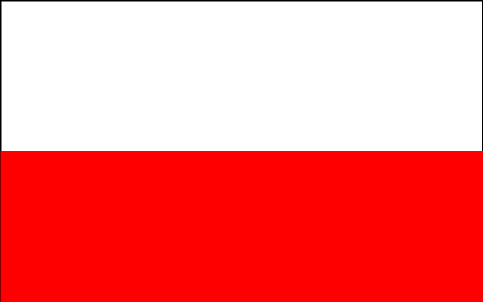Login form
Customs of Poland
Marriage and Family
 Young people who start work after the minimum required schooling tend to marry earlier than those who continue their education. Newly married couples often live with their parents for a few years and may be given other financial assistance.
Young people who start work after the minimum required schooling tend to marry earlier than those who continue their education. Newly married couples often live with their parents for a few years and may be given other financial assistance.
Urban families usually have one or two children, while rural families often have three or four. In most households, children are given considerable responsibility from an early age. Because both parents usually work outside the home, the children often prepare their own breakfast and go to school by themselves. Older children clean the home, sometimes cook meals, and often care for younger siblings. The economic situation of most families demands the equal involvement of both parents in raising the family and working outside the home, although women still take most responsibility for looking after the home. The majority of women have jobs outside the home. The elderly are often cared for by their adult children.
Eating
Because work and school begin early, many Poles have only a light breakfast with coffee, tea, or cocoa and sometimes cereal, taking a sandwich along to eat at 10 or 11 am. The main meal is served sometime between 2 and 4 pm, depending on what time people return from work—people who are not at work or school would eat the main meal earlier and would not have a mid-morning snack. The meal usually consists of soup, meat or fish, salad, and potatoes. Fruit juice compote, pastries, and ice cream are a few popular desserts. The compote, usually homemade, is a combination of fruit juice, fruit, and water. A light supper follows around 7 or 8 pm.
Some common dishes include pierogi (dumplings with cream cheese and potatoes), uszka (a kind of ravioli) served with borscht, bigos (sausage, mushrooms, and cabbage), braised pork and cabbage, poppy-seed desserts, and cheesecake. Bread is purchased several times a week, sometimes even daily. Bread, dairy products, and canned fish are plentiful, and pork is more popular than beef. With the switch to a market economy, more food in greater variety is available, but prices are much higher and many families spend a large proportion of their income on food.
Poles eat with the fork in the left hand and the knife in the right. It is good manners to keep both hands (not the elbows) above the table during the meal, and not to start eating until everyone has been served and the host or head of the family has begun. People tend to talk relatively little while eating, but it is usual to stay at the table for conversation once the meal is finished. At both formal and informal dinners, the host will often propose a toast to the guest, and the guest is expected to reciprocate.
Socializing
Adults generally shake hands upon meeting. Occasionally men still follow the tradition of kissing a woman's hand. When introducing a man, one uses Pan (“Mr.”) before the last name; for a woman, the term is Pani (“Mrs.”). A professional person’s title is used before his or her last name. Only the person’s title is used in formal conversation or in business. First names are used only by mutual consent between adult friends, but teenagers and children are called by their first names. Women often greet close female friends by kissing their left cheek, then right cheek, then left again. Some common Polish greetings include Dzień dobry, which means “Hello” or “Good morning”; Dobry wieczór (“Good evening”); and Do widzenia (“Good-bye”).
Unannounced visits among friends and relatives are common, particularly in rural areas. More formal, longer visits are arranged in advance. Poles often invite friends over for dinner, or just for cake and tea, and they like to have formal parties on special occasions. When invited for even a short visit, it is customary to bring a gift of an odd number of flowers, which should be unwrapped before being presented. Guests may be entertained at a kawiarnia, or café, which offers a variety of French pastries in addition to its own specialties; such visits often last several hours. However, it is more common to invite guests to meals at home, due to the long-standing tradition of entertaining at home and because of the expense of eating out. Because Poles generally go to work early in the morning, evening visits on weekdays do not usually extend beyond 11 pm. On weekends, however, guests stay later.
Recreation
Soccer is very popular in Poland; the people also participate in track and field events, cycling, table tennis, skiing, basketball, volleyball, and various individual sports. Bridge is a favorite card game, and Poles enjoy socializing with friends and relatives, watching television, going to the cinema, and attending concerts and other cultural events. In the fall, people go into the woods to pick mushrooms. The mushrooms are then dried and may be used to make uszka for Christmas.
Holidays and Celebrations
New Year’s Day in
Labor Day is observed on 1 May. Polish Constitution Day on 3 May commemorates the ratification of
All Saints’ Day (1 November) honors all the saints in the Christian calendar. On this day, Poles visit the graves of relatives and friends, offering prayers and lighting candles. Independence Day, which commemorates the proclamation of an independent
Christmas is
In
Source: Encarta Interactive World Atlas

